There is simply no better way to sweeten your day
Welcome to Fox Honey Farm!
Honey is our passion
It all began in 1999 when Sergei decided to expand his long time hobby of beekeeping with a purchase of 100 bee hives.
(Sergei and his oldest son Roman moving the bees into their new homes)
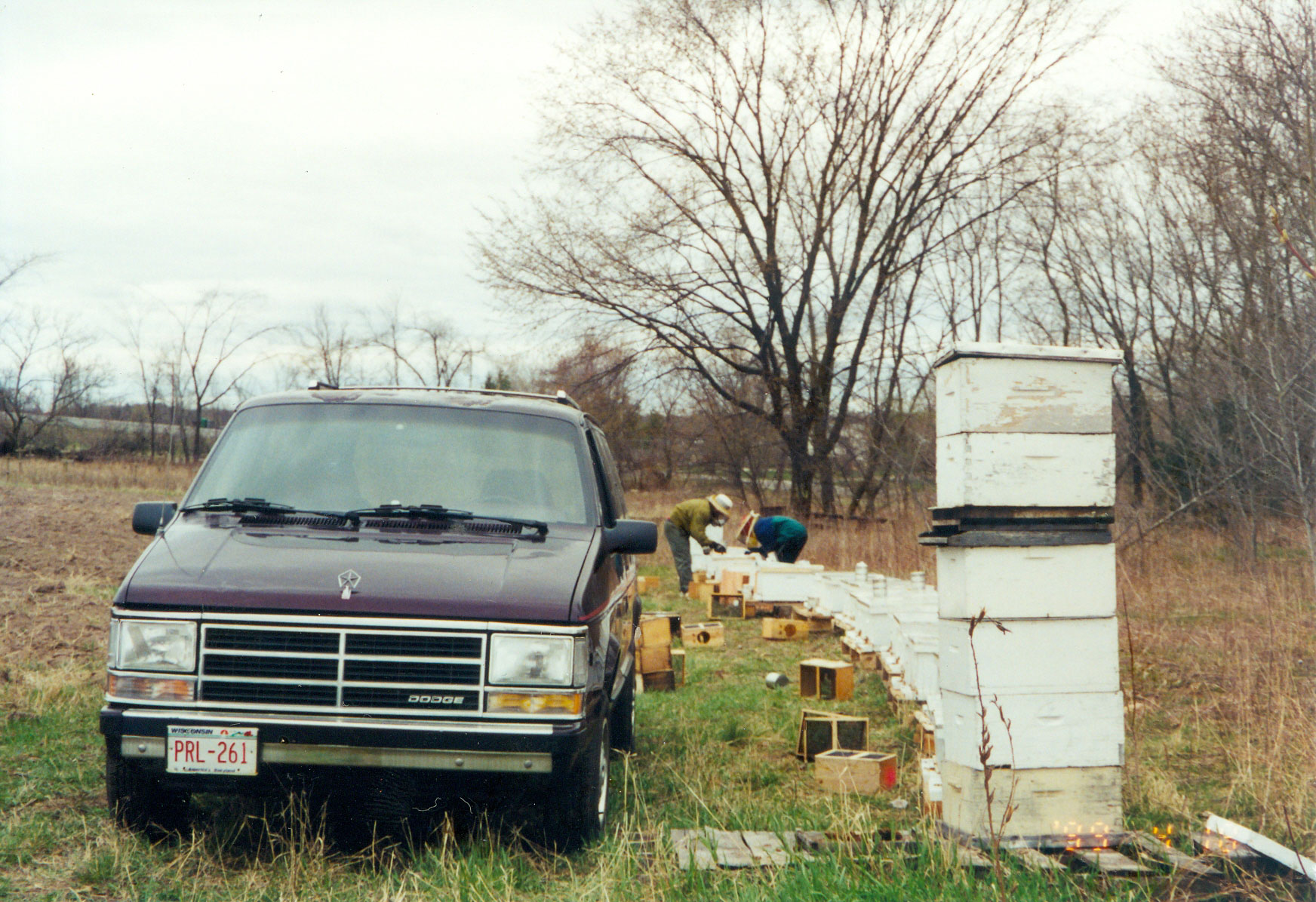
After much labor and bee stings the first honey harvest was over.
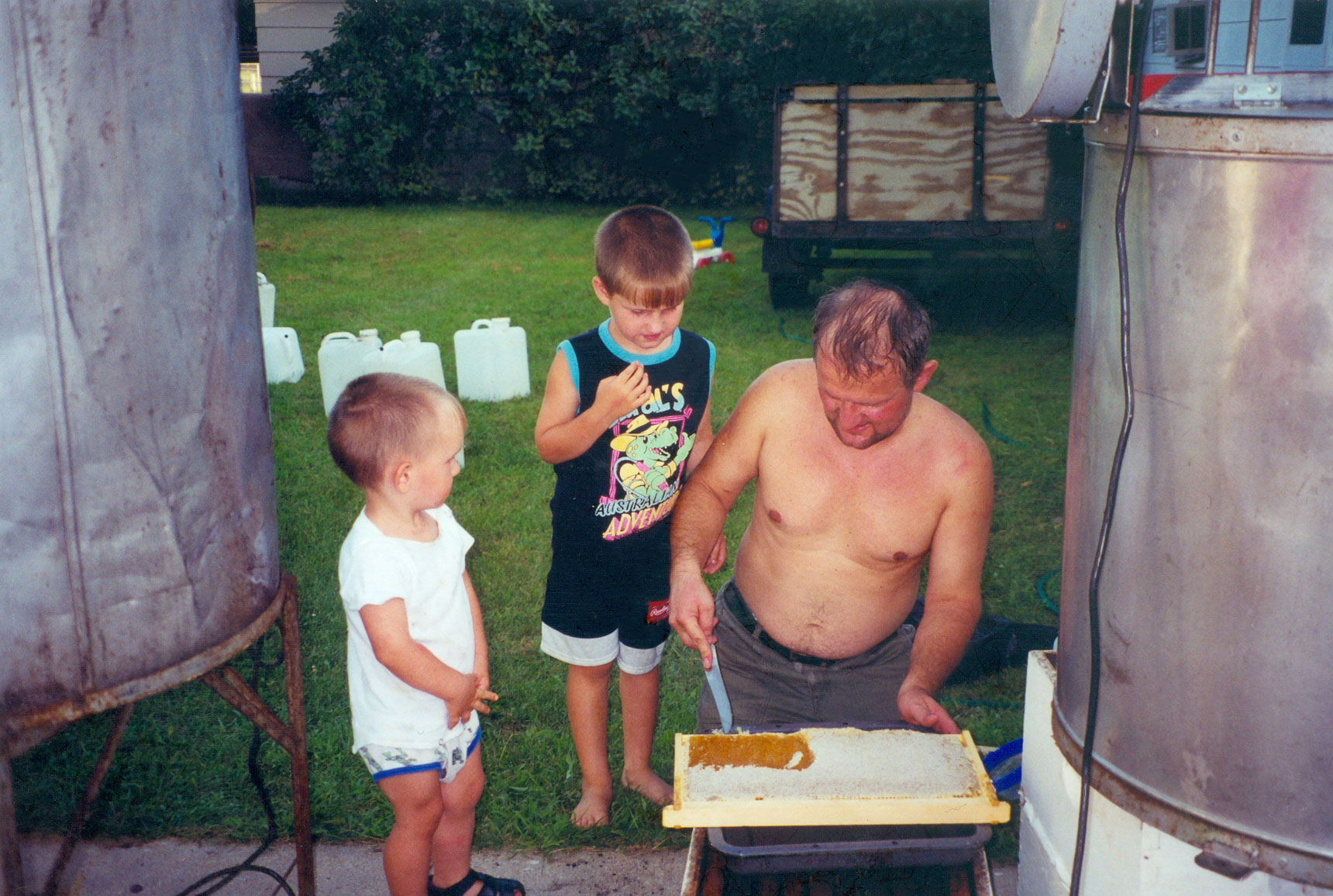
The boys enjoying the first harvest of honey. Left to right (Daniel, Artem, and Sergei) 1999
After getting a taste of full time beekeeping Sergei knew that he needed more bees to support his family. The following years he would increase his hive count, splitting and buying hives.
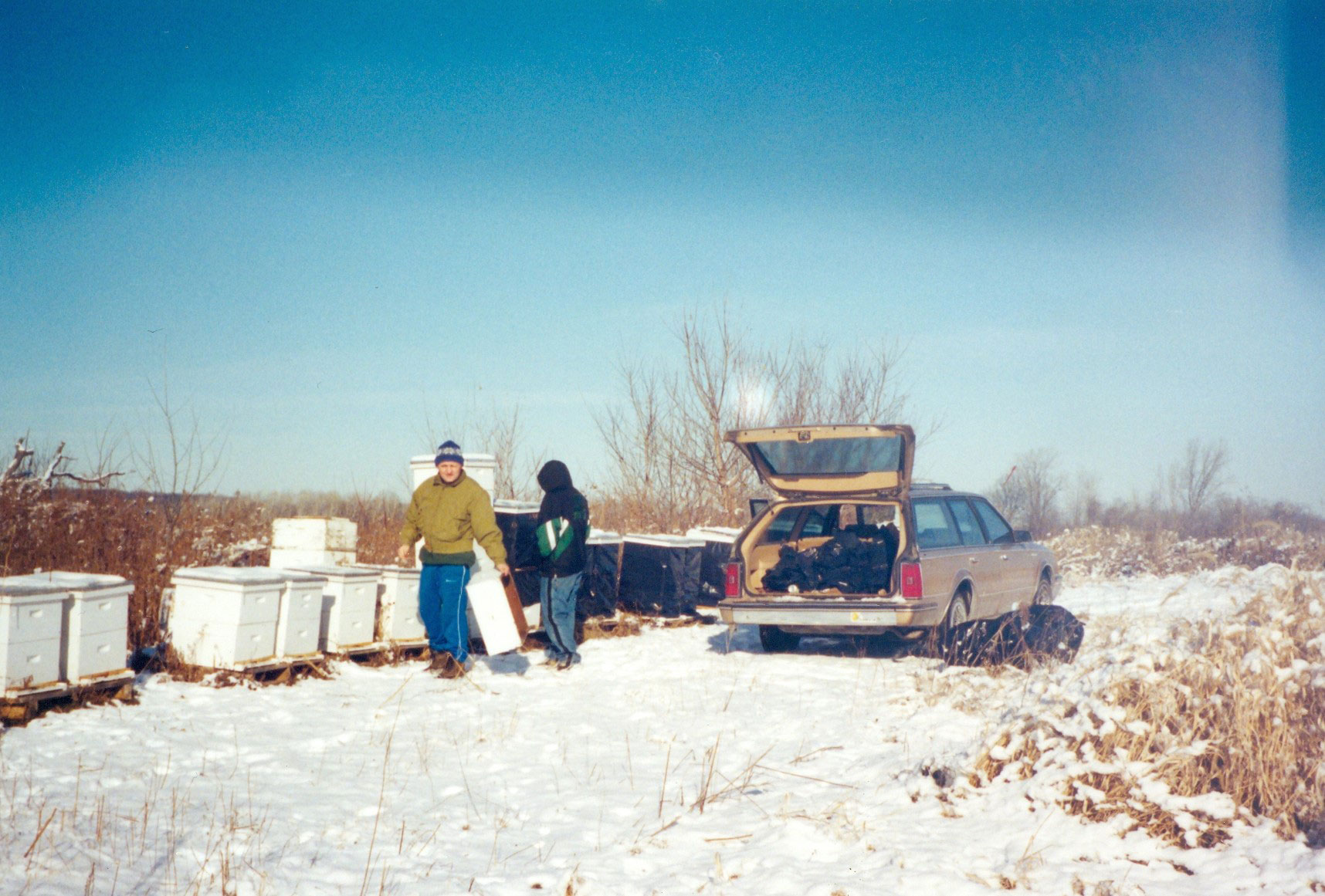
2004, with roughly 400 beehives (tractor trailer load) it was time to migrate the bees between Florida and Wisconsin for more honey and warmer winters.
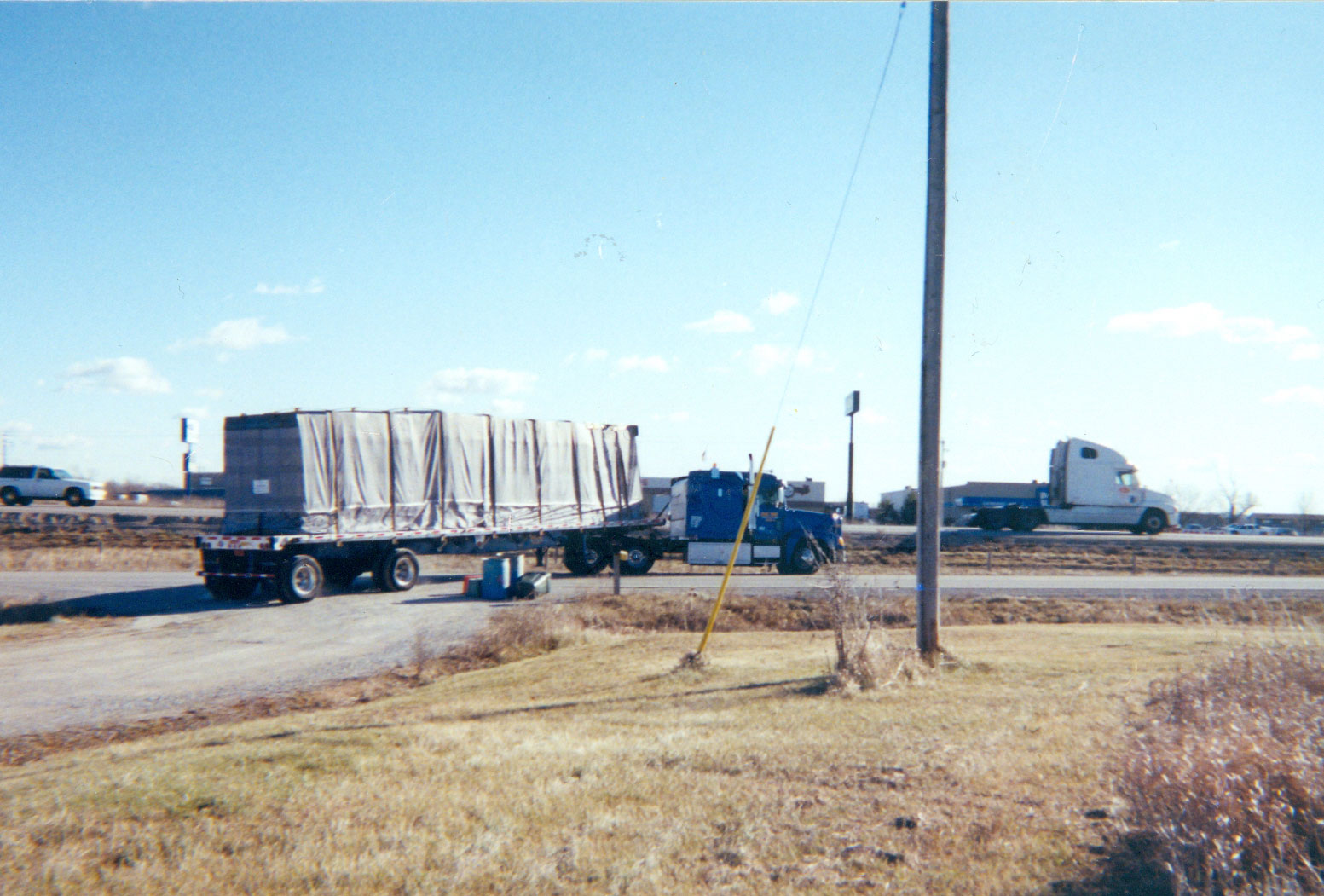
2004, The bees go to Florida for the first time.
Now that the bees where in Florida during winter and spring they could collect many different types of honey, which requires lots of moving. The need for a large truck and forklift was quickly realized. Without them beekeeping would be back braking work.
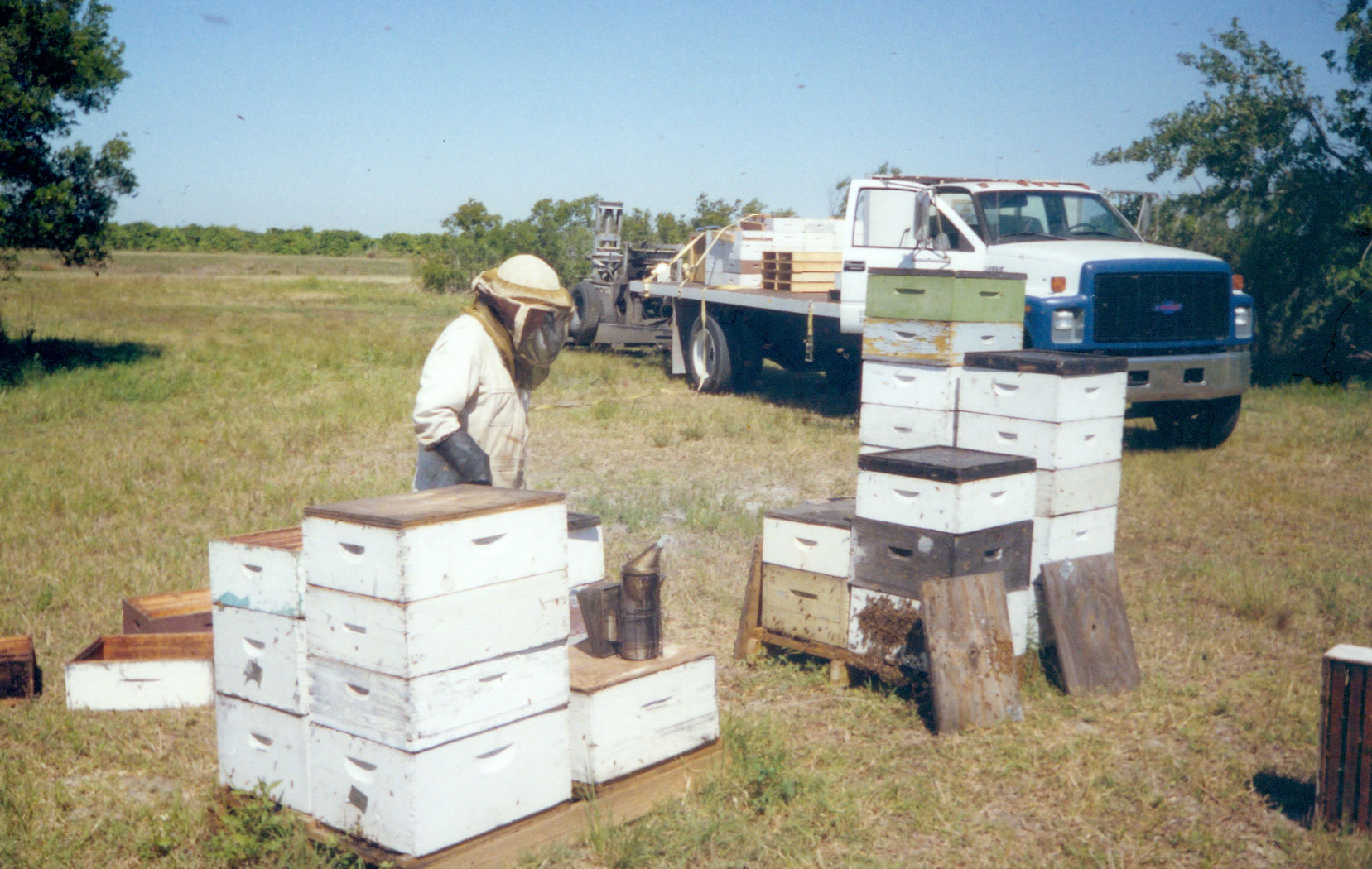
Flat bed truck and forklift for moving bees quickly.
In the first years in Florida, Sergei searched for the ideal place to keep bees. Finally, he settled in Wewahitchka, Florida, one of the most unique and beautiful places in the panhandle of Florida. "Wewa" is the center of tupelo honey production. After buying a honey house in Wewahitchka, Sergei could focus on growing his hives once again. As the kids grew up, they also joined in, specializing in different areas of beekeeping. Now we have around 1000 bee hives. The farm has expanded from honey production to collecting pollen, propolis, breeding queens, and making nucleus colonies.
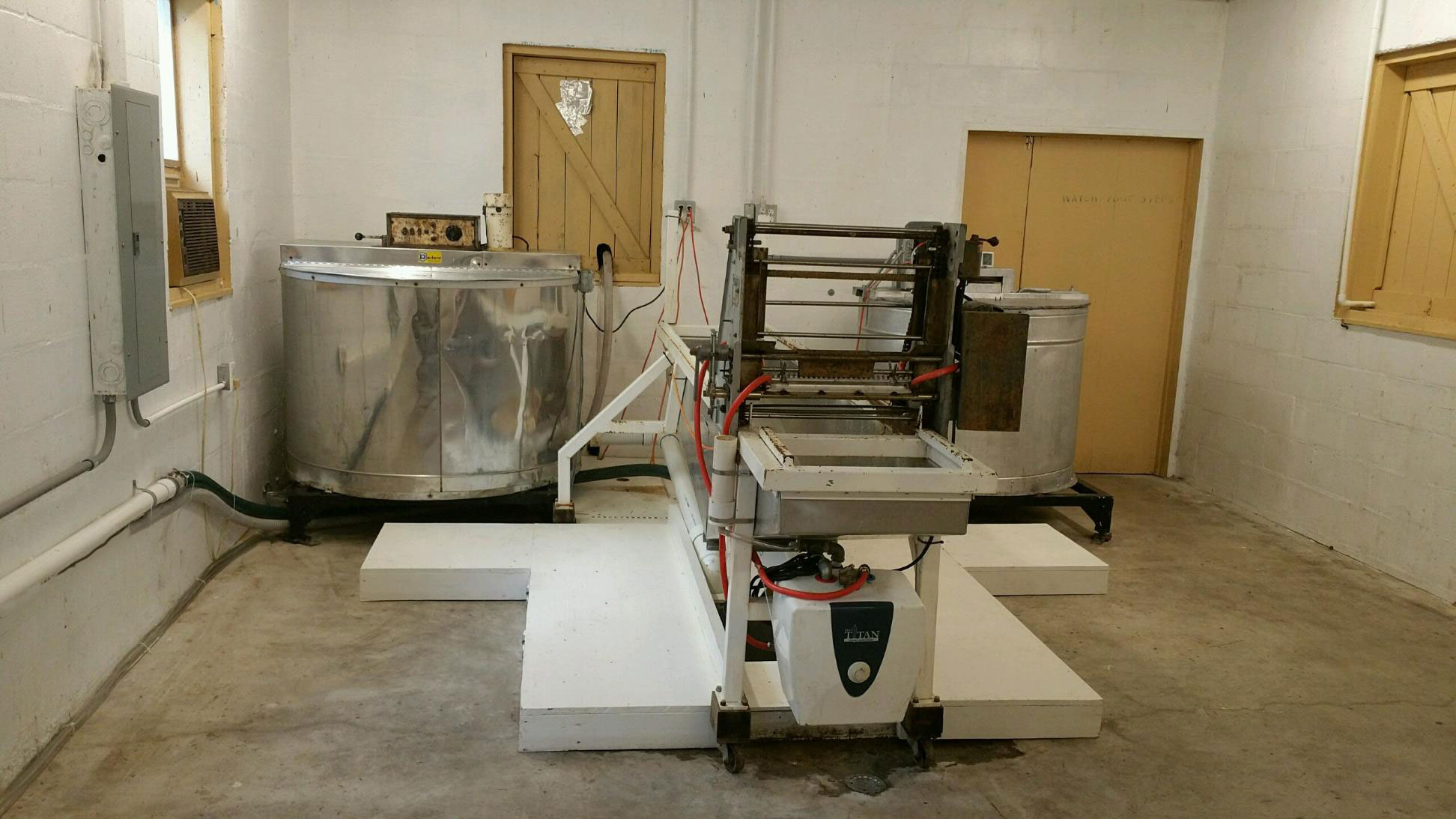
The Florida honey house
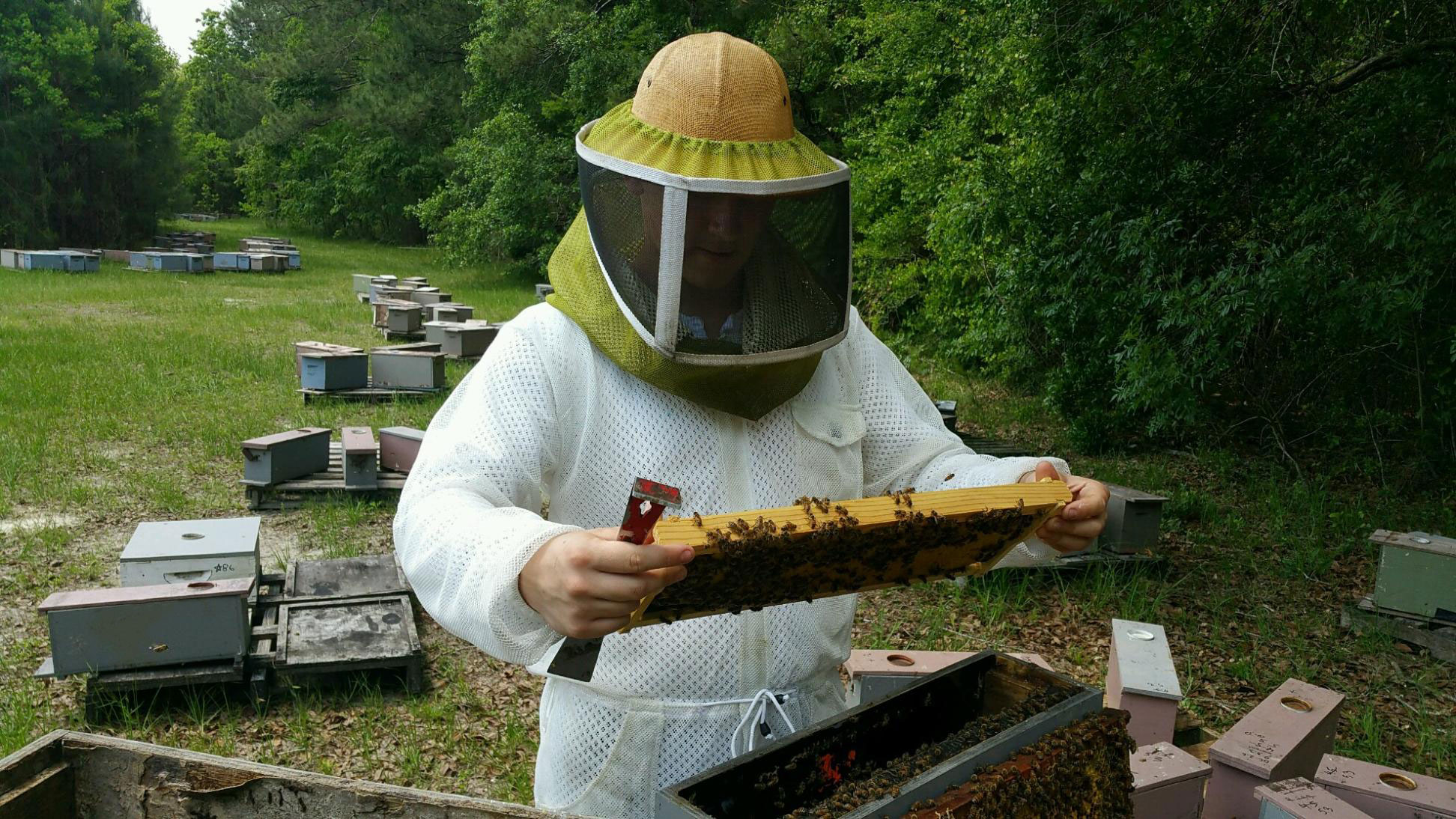
Daniel working with the queens
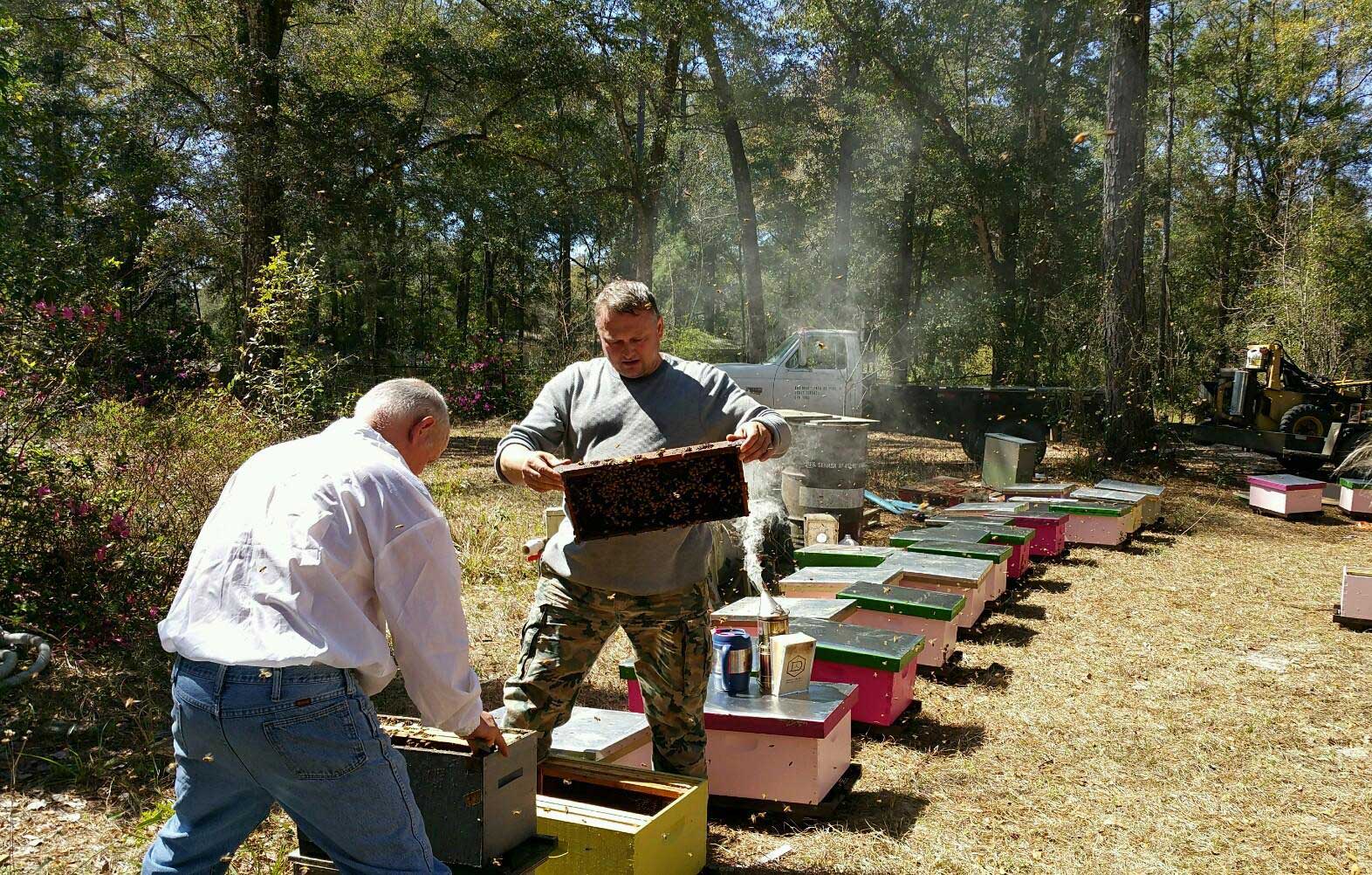
Sergei helping a customer with nucs
Our Florida and Wisconsin operations
During the winter months, our bees are hard at work in our northern Florida locations where they collect a range of different honey during the weeks of flower blooms. This is the longest season for the bees and for us, as we extract at different times to collect specific honey.
In the summer, the bees are all moved back to Wisconsin where they are prepared to collect the summer bloom. All of this work really pays off as we get the best honey at the best locations to offer a great variety of honey that is pure, natural, and just plain wonderful!
Our Florida Honey Collection
Red Honey – Starts at the end of April
Red Honey is collected from all that blooms in February: maple, willow, Tai Tai, and other shrubs. This honey naturally crystallizes very quickly after harvest and becomes soft like peanut butter in about two or three weeks. Red Honey has a mild, pleasant taste and aroma. It is my personal favorite for coffee and baking.
Tupelo Honey - Starts at the end of April and Beginning of May
Tupelo Honey is collected from the nectar of the Tupelo trees. Tupelo honey is collected only in one place in the world—the Apalachicola River floodplain. It does not crystallize and stays liquid indefinitely. When Tupelo Honey is sufficiently pure (80-90% pure Tupelo), due to its high laevulose (44.3%), low dextrose (29.98%) ratio (average), doctors have been able to recommend some diabetic patients to consume Tupelo Honey. (Please consult your doctor before trying small amounts while watching blood sugar levels). This is one of the most respected honeys in America. Due to the uniqueness, Tupelo Honey's price is higher than any other honey in America. Try it with crapes and pancakes.
Gallberry Honey – Starts at the end of May
A fine table honey. Typically crystallizes 6-8 months after harvest. Gallberry Honey is harvested from a small evergreen holly bush (also known as inkberry) that grows along the South Atlantic and Gulf Coast and produces a unique honey that is popular throughout the piney woods and swamps of southeast Florida. Try it with tea and toast.
Tallow Honey – Starts in June
Collected from blooming Tallow trees. It is dark in color and rich in flavor. A fine table honey. Typically crystallizes 6-8 months after harvest.
Our Wisconsin Honey Collection
Wisconsin honey is the closest in appearance and taste to honey that we had in Ukraine and Russia. However, in America alone, there are about 300 different types of honey, all unique in taste, flavor, and content. Thank God for such a variety!
May Honey- May and early June
Collected from dandelion, acacia, and other blooms during May. This is the first honey the bees collect in Wisconsin. May honey is stronger in floral flavors than clover honey with distinct dandelion notes throughout. The color is beautiful golden amber. May honey will typically crystallize in 2-3 months. Try it on a dessert or cheese to add another level of flavor.
Clover Honey – End of July and beginning of August
Collected from a variety of flowers, clover, linden, alfalfa, and other wild grasses. This is our second harvest, and the honey is very light and pleasant with a strong sweet aroma. Try it with biscuits and salad dressing.
Clover Goldenrod Honey – End of August
Sometimes northern autumn honey is slightly different from the honey that we had in the summer. During August, goldenrod flowers bloom along with clover and alfalfa, giving this honey a different flavor than the clover honey from July. Honey from Wisconsin typically begins to crystallize in 1-3 months after harvest.
How we harvest our honey
Bees collect nectar and pollen from flowers and carry it to the hive. There, the bees dry off the excess moisture by shifting it from the cell in the honeycomb; it gets processed and enriched with enzymes. All honey is then antibacterial and antifungal because the bees add an enzyme that makes hydrogen peroxide. God gave them this talent. Honey has many of these healthy benefits and is widely studied as a natural healthy supplement. The honey is then capped with beeswax and will be there for later consumption or for the beekeeper that will extract it with care. We collect honeycomb frames from the hives, uncap the comb using hot knives, and place them into the honey extractor. The honey extractor spins the frames, forcing the honey to drip out and collect in the honey bucket. The honey bucket is then poured into a larger tank and immediately dispensed into various jars and pails. We try not to disturb the honey and its valuable properties, and so we do not filter or pasteurize our honey. Therefore, in our honey, you will see lots of specks and particles of pollen, propolis, and beeswax, especially on the cover. For someone who knows honey well, this is the best sign of quality honey.
Frequently asked questions about our honey:
Why does your honey crystallize?
All honey (except Tupelo) sooner or later will crystallize, harden, and become creamy. This is normal and even a mandatory process for almost all honey. After that, honey becomes even more delicious and easy to spread as well. Honey naturally self-crystallizes over time and self-preserves for even thousands of years, and honey never goes bad. Some pure honey like acacia may be liquid for a year; others like sunflower honey harden even within a few days after the bees have collected it. In China, there is a honey that hardens within hours after extraction. It is poured into a bucket, and a stick is placed in the middle. The stick is used to pull the honey right out of the Honey buckets, put the honey on a rope with a rocker, and is then carried to the market. And everyone knows this honey and knows that it is the freshest.
If you wish to have liquid honey on the table, you can carefully warm the honey till it becomes liquid again. This can be done by putting the jar of honey in a white Styrofoam cooler (not plastic). Pour hot water from the tap, fill it to within one inch of the top, and close the cooler (Sometimes cooler might leak, so it is best to leave it in the sink overnight). Hot water will warm up the honey slowly, and in the morning, you will find honey liquid and lukewarm. This process does not damage the honey and can be repeated as many times as you would like.
God's blessings to you all,
Sergei the beekeeper
Fox Honey Farm
There is simply no better way to sweeten your day
Testimonials
Elena K. Delicious Honey! Makes great gifts too!
